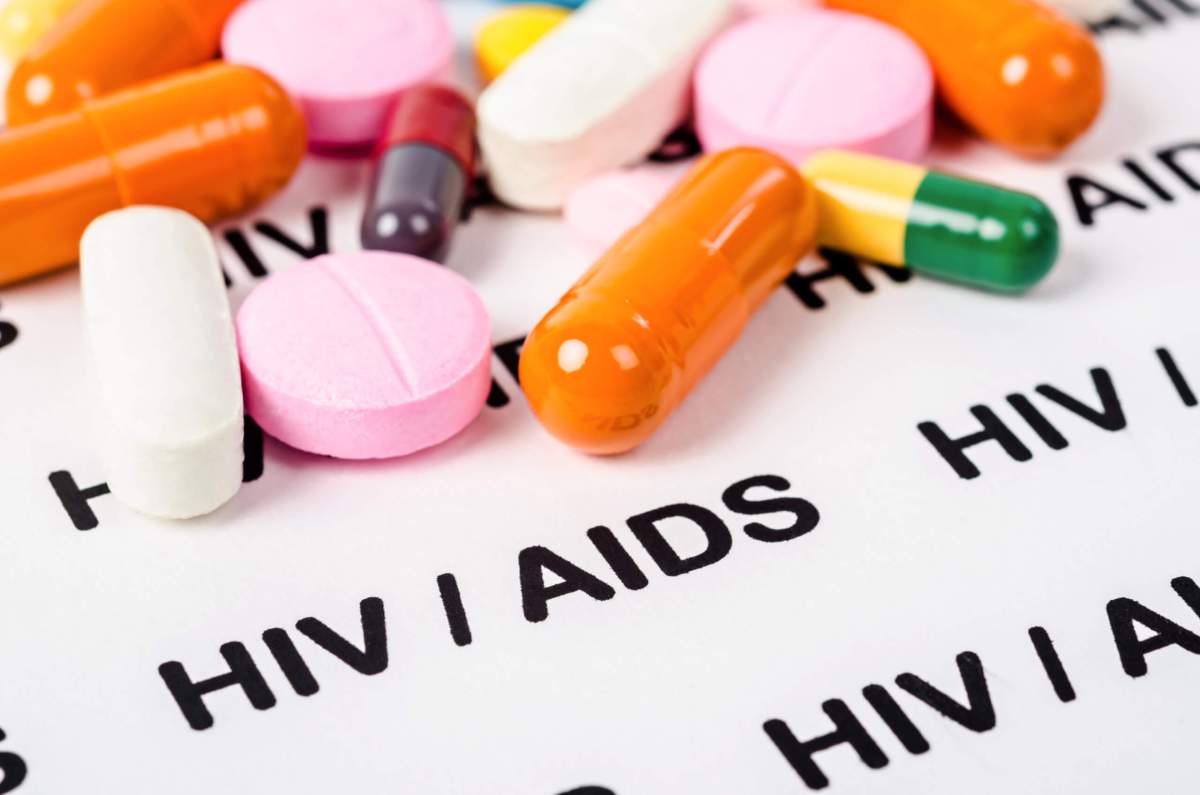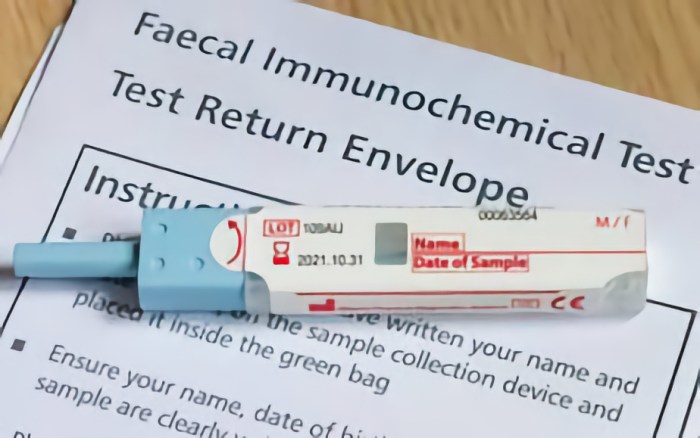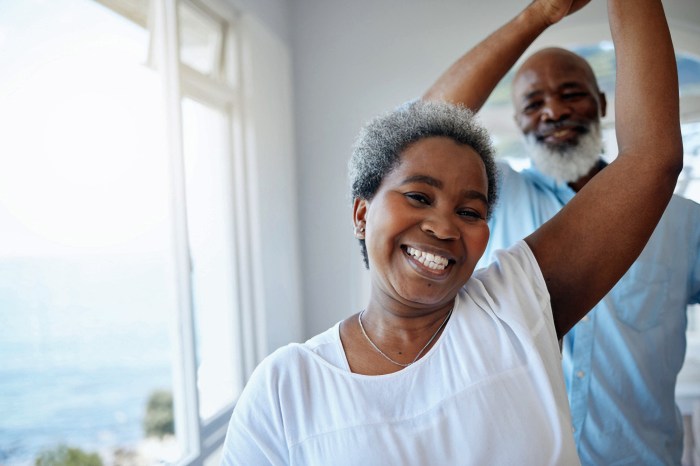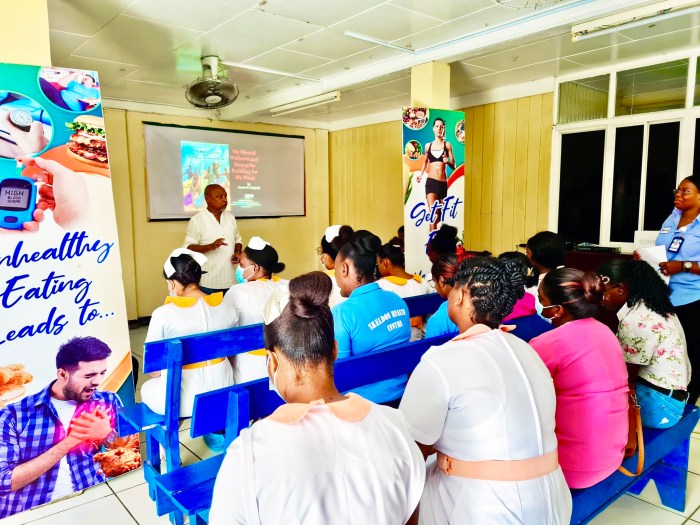Following a five-day visit to Jamaica in November to see first-hand the extraordinary work of joint efforts by the government, partners and communities to end AIDS, UNAIDS Executive Director Winnie Byanyima said she observed “strong political commitment and country ownership in Jamaica’s response to HIV,” according to UNAIDS Caribbean on Nov. 15.
“I also witnessed the active contribution and engagement of civil society and communities living with or affected by HIV,” Byanyima said. “Your dedication and commitment give me hope that Jamaica and the wider Caribbean region can end AIDS.
“However, there are barriers to overcome, these include addressing inequalities, eliminating stigma and discrimination, ending punitive laws which harm the AIDS response, and eliminating gender inequalities, including gender-based violence,” she added.
In all of her engagements with senior government officials, civil society and international development partners, the UN AIDS Executive Director said she shared four vital recommendations to overcome inequalities and ensure a sustainable response to HIV.
They comprised getting the data right—and using the evidence to ensure access to HIV services for everyone who needs those services, free of stigma and discrimination; improving governance and coordination for a truly multisectoral and multidisciplinary HIV response; ending gender-based violence – and especially sexual violence; and increasing fiscal space and efficiently investing in what works.
Byanyima said more investment is needed to end persistent structural barriers and develop anti-discrimination legislation.
“Social contracting schemes need to be implemented with civil society, which will be transformational in delivering community-level services,” she said. “Health systems must be strengthened to deliver people-centered services more efficiently and more cost-effectively, which is also crucial for pandemic preparedness.
As the Executive Director of UNAIDS, Byanyima said her commitment is to intensify and expand support from 11 cosponsors to end AIDS in Jamaica and across the Caribbean.
In supporting efforts to increase access to HIV prevention and treatment services and in ensuring an enabling environment where people feel safe in accessing those services, she said UNAIDS will support efforts to integrate HIV into other health services, especially at the primary health care level, without compromising the quality of HIV services being delivered.
She said UNAIDS further commits to strengthening partnerships with stakeholders in the region and ensuring effective coordination of our efforts.
In addition, Byanyima said UNAIDS will work with the President’s Emergency Program for AIDS Relief (PEPFAR), the Global Fund to Fight AIDS, TB and Malaria, and the Pan-American Health Organization (PAHO) to strengthen data systems and ensure a response, “which is evidence based and which reaches the people most in need. UNAIDS will also continue to work with partners to mobilize resources to support Jamaica’s efforts to fight HIV.
“Jamaica is making progress. But I know Jamaica can move faster and reach the 15 000 people living with HIV, including over 300 children, who are currently not accessing HIV treatment,” she said. “We only be able to end the HIV pandemic, or, indeed, any other pandemic, when human rights are respected and when everyone is supported in accessing the health and social services they need.”
According to Wikipedia, the free online encyclopedia, the Caribbean is the second-most affected region in the world in terms of HIV prevalence rates.[
Based on 2009 data, about 1.0 percent of the adult population (240,000 people) is living with the disease, which is higher than any other region, except Sub-Saharan Africa.
Several factors influence this epidemic, including poverty, gender, sex tourism, and stigma, Wikipedia said.
It said HIV incidence in the Caribbean declined 49 percent between 2001 and 2012, stating that different countries have employed a variety of responses to the disease, with a range of challenges and successes.
According to The World Factbook, the Bahamas has an HIV/AIDS prevalence rate of 3.3 percent, which is the highest rate outside of Africa.
Although the exact origin of the disease is unknown, Wikipedia said the HIV epidemic in the Caribbean most likely began in the 1970s.
It said the first reported AIDS case occurred in Jamaica in 1982, followed by eight cases among gay and bisexual men in Trinidad and Tobago.
In the early days of the epidemic, more men were affected than women, Wikipedia.
By 1985, however, it said HIV/AIDS clearly was becoming a general population issue and was no longer a disease solely of gay or bisexual men.
Contrary to popular belief, Wikipedia said the primary mode of HIV transmission in the region is heterosexual sex.
It said the number of new HIV infections among women became and continues to be higher than those among men.
Currently, the Caribbean is the only area outside of Sub-Saharan Africa where women and girls outnumber men and boys living with HIV, Wikipedia said.
Among adults aged 15–44, it said AIDS is the leading cause of death. Between 2001 and 2009, it said new infections slightly declined.
Wikipedia said there is a large degree of variation of HIV prevalence between the 21 Caribbean countries.
Currently, it said there are two countries where the national prevalence is over 2 percent, those being the Bahamas, and Belize.
In Jamaica and Haiti, Wikipedia said the HIV rate is estimated to be about 1.8 percent, while in Trinidad and Tobago the rate is 1.5 percent.
In the region, the rate in Guyana and Suriname is between 1 and 1.1 percent, according to Wikipedia.
In Barbados and the Dominican Republic, it said the rate is 0.9 percent and 0.7 percent, respectively.
Wikipedia said Cuba has the lowest rate, which is under 0.2 percent.
“The HIV/AIDS epidemic in Caribbean appears to have been overshadowed by the seemingly more severe problems in Sub-Saharan Africa, Asia, and the countries with more active and highly visible activism,” it said, stating that a variety of social factors have perpetuated the spread and worsened the severity of HIV/AIDS in the Caribbean.
It said many persons are at increased risk of HIV infection because of their social vulnerability, arising from poverty, illiteracy or limited education, unemployment, gender inequity and sexual orientation.
“HIV/AIDS can weaken the national education system, perpetuating the spread of the disease by hindering efforts to educate the public about the disease,” Wikipedia warned. “Furthermore, a weak political response by the government can result in ineffective programs.”
It said public policies in some countries openly discriminate against HIV-positive people, placing the burden of responsibility on the family of the infected individual.
“Discrimination also takes place in housing, employment, and public accommodations, and currently little is able to be done,” Wikipedia said. “Because of these factors, many have less knowledge, skills and motivation to practice safe-sex and avoid the disease.”



























